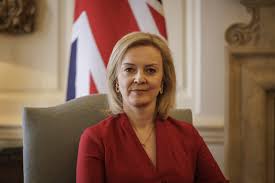UK: Truss quits as Prime Minister
Liz Truss has resigned as Prime Minister of the United Kingdom. Her resignation came just 45 days in office - the shortest tenure of any UK prime minister.
Liz Truss’ tenure had experienced political and economic turbulence sparked off first by her Chancellor’s monetary policy, which sent the financial market trembling. Kwasi Kwarteng’s economic plans rattled the financial markets with his mini-budget on 23 September and dragged the British Pound to its lowest rate in decades.
That economic policy was criticised at home and abroad, including a rare rebuke from the International Monetary Fund (IMF). It did not help that even Liz Truss’ conservative party members showed their disapproval and sharply criticised her policy, with some party members calling for her resignation.
The revolt within the party was much and resulted in the resignation of the Chancellor and, most recently, the home secretary Suella Braverman. But their departure could not save Liz Truss’ premiership, who just assured her party and the British public just yesterday that she was a fighter, not a quitter. Today, Liz Truss has found herself a quitter.
Truss told her party she could not deliver on her promise. The opposition labour party has called for a new general election.
Her departure has added more confusion and, some would say, uncertainty to the future of Britain since its Brexit. The country is experiencing the quickest turnover of power in modern times, with the third PM of the year in October.
It is would not be unfair to call this unprecedented political turmoil in Britain a harbinger of unpredictability and precariousness in the future of the UK.

